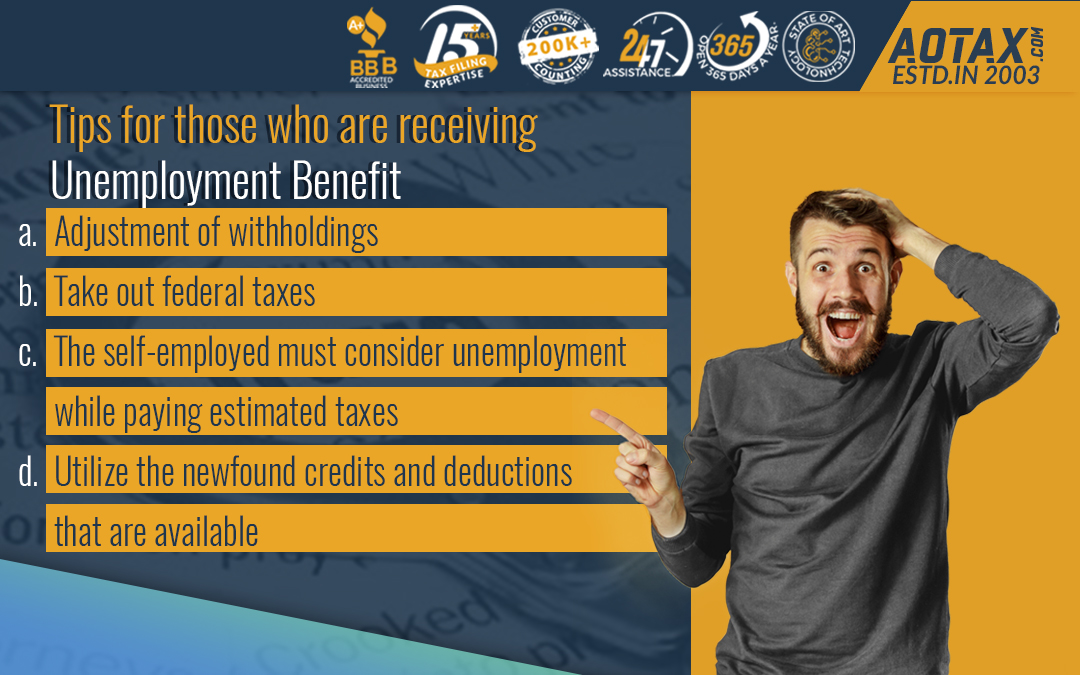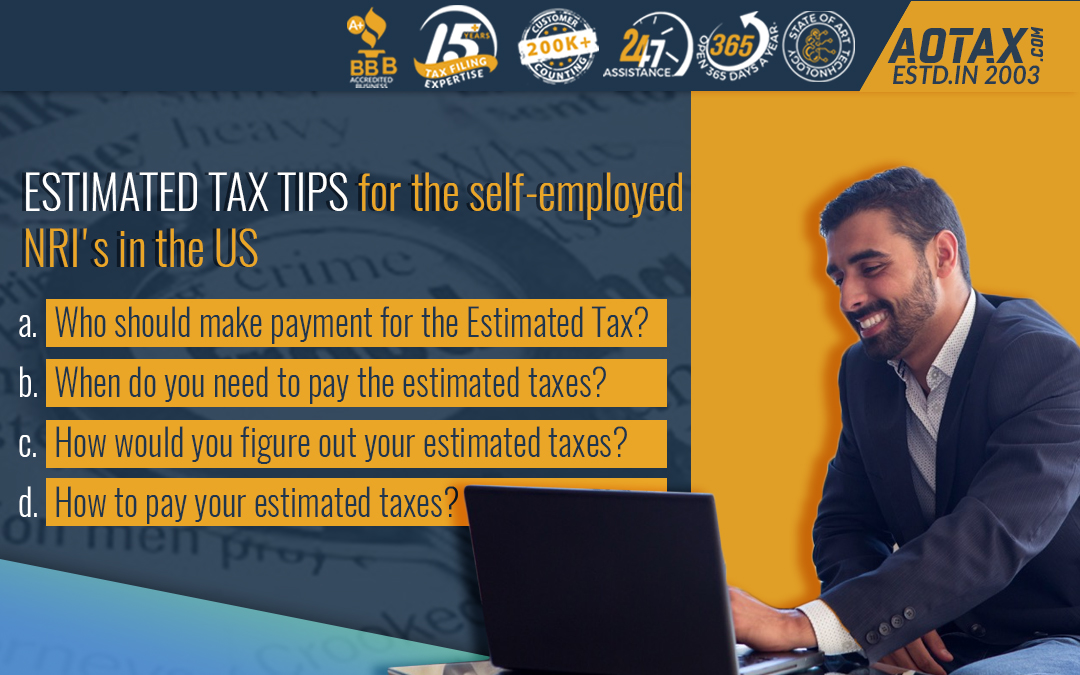Tax Tips for the Furloughed NRI’s
Tax Tips for the Furloughed NRI’s

Due to the pandemic COVID-19, millions of Americans are facing a very tough time maybe physically or financially. The rate of unemployment has been increasing at a very rapid rate with many Americans filing the claims for unemployment benefits. Moreover, the rate of unemployment has increased by 14% in the country due to a loss in work or due to many people being furloughed.
By the CARES Act, the US Government ensured that proper help was provided to those NRIs who have been impacted by the coronavirus. By the CARES Act, unemployment benefits and unemployment increase of $600 in a week was granted. However, if you are a furloughed NRI due to the COVID-19 and are obtaining unemployment benefits then it is quite obvious for you to think about the taxation rules for the unemployment benefit.
What are the taxation rules for Unemployment Income?

Unemployment benefit is considered taxable and it must be considered as a part of your income for the tax year. There are some states which would consider the unemployment income as taxable income.
When you are receiving unemployment income, you would be receiving Form 1099-G which would show the unemployment benefit that you have received.
Tips for those who are receiving Unemployment Benefit

Some major tips for those NRIs who are receiving Unemployment Income are mentioned below.
Adjustment of withholdings
If an NRI is employed, he must take his unemployment benefit into account while filling the W-4 withholding certificate for his employer. This is necessary if there have been no taxes withheld from the unemployment income of an NRI.
Take out federal taxes
Unemployment income is taxable; an NRI must take out federal income from his unemployment income so that there are no problems while filing taxes. NRI taxpayers can withhold up to 10% from their unemployment income by filing Form W-4V Voluntary Withholding Request and providing it to the agency which would be paying the benefits. In case, the NRI does not choose voluntary withholding or does not withhold enough then he can even do estimated tax payments.
The self-employed must consider unemployment while paying estimated taxes
In case, the NRI is a freelancer, a contractor, etc. then the NRI must consider that the unemployment income would be added up to the self-employment net income and would be taxable. If the self-employed NRI plans to pay his estimated quarterly tax, then he can also consider his unemployment income if he does not have federal taxes withheld from his unemployment.
Utilize the newfound credits and deductions that are available
Some of the tax credits and deductions are based on the income of the NRI for which he might not have been eligible before because of higher income. However, the NRI is eligible for this now because of being furloughed. The best examples to explain this are the Earned Income Tax Credit and the Saver’s Credit. According to the IRS data, 20% of people do not remember these two credits. The Earned Income Tax Credit is calculated on the basis of income and is a big credit; in case the NRI has had a low income in the year 2020 due to the loss of wages then the NRI would be eligible for EITC. By this EITC, he would get a credit of worth over $6000 if the family has 3 kids.
By the Saver’s credit, contributions would be made towards retirement. In case, the NRI has paid towards his retirement plan in 2020 and is now under the income threshold by which he would qualify for Saver’s credit then he would obtain a credit whose worth would be up to $1000 in case of being single or $2000 if married and filing tax returns jointly.
The Child and Dependent Care Credit is another tax credit which an NRI might get to see if he had paid someone to take care of his child while he was working or even was job hunting, This percentage of child care credit would be from 20% to 35% of his expenses up to $3,000 if he has a single child and up to $6,000 if he has two or more children based on his income. In case the NRI is having a lower income he might claim 35% of his expenses i.e. $1,050 for a single child and $2,100 for more than two children.
Conclusion
So, these are some of the tax tips which would help furloughed NRIs to understand their tax implications without many complications.



Recent Comments